World Brain Day Webinar
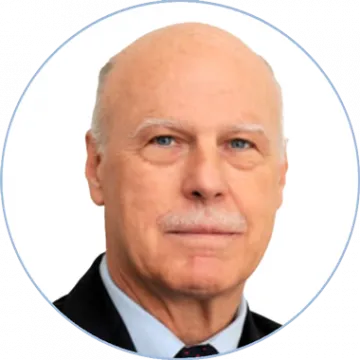
Brain health isn’t a moment in time—it’s a lifelong commitment. World Brain Day 2025 is our call to action to protect neurological well-being from the earliest stages of development, through childhood, adulthood and into older age. It’s a commitment to care, equity, and access for all.Prof. Wolfgang Grisold, President of the World Federation of Neurology
World Brain Day 2025
Brain Health for All Ages
By Tissa Wijeratne, OAM MD, PhD & David Dodick, MD
Co-Chairs, World Brain Day 2024
Wolfgang Grisold, MD
President, World Federation of Neurology
We are excited to announce the 12th World Brain Day 2025, a global campaign devoted to promoting brain health for all ages. Our vision for WBD2025 is to work collaboratively with UN ECOSOC and the WHO Brain Health Unit, making this initiative a historic milestone in establishing brain health as a universally recognized priority.
Aligned with the Intersectoral Global Action Plan (IGAP) for Epilepsy and Other Neurological Disorders (2022–2031) and the United Nations Sustainable Development Goals (SDGs), this year’s campaign seeks to advance a comprehensive and practical strategy that integrates regional insights and fosters sustainable change worldwide. We firmly believe that brain health is essential for individual well-being and for societal progress.
World Brain Day 2025 on Brain Health for all ages is structured around five key messages for action:
- Awareness: We aim to elevate the global conversation on brain health by combating stigma and promoting the early recognition of neurological disorders.
- Education: Empowering healthcare professionals, caregivers, and the public with the latest scientific knowledge and practical training is vital for advancing brain health initiatives.
- Prevention: Our strategy emphasizes evidence-based measures such as early childhood nutrition, vaccination, hypertension control, and lifestyle modifications to reduce risk factors.
- Access to Care and Disability Management: It is imperative to ensure that high-quality neurological care, rehabilitation services, and assistive technologies are accessible and affordable, especially in low- and middle-income countries.
- Advocacy: By driving policy change, increasing research funding, and strengthening healthcare infrastructure, we can reduce the global burden of neurological disorders.
Celebrating the 12th World Brain Day
We invite all regions and member societies to join us in this important campaign. Your active participation is crucial as we work together toward a healthier, more equitable future—ensuring that every individual benefits from improved brain health and well-being.
The World Federation of Neurology (WFN) is proud to bring together its six regional organizations—representing Africa, the Eastern Mediterranean, Europe, Pan America , Asia Oceania and the Pan Arabic region—to advocate for brain health from pre-pregnancy through late adulthood.
Join us on 22 July 2025 to celebrate and promote brain health for all ages. Stay updated on our progress by visiting the World Federation of Neurology website and exploring the WBD toolbox.
For further information contacts us on wbd@wfneurology.org
What Is Brain Health?
Brain health means keeping our minds sharp, resilient, and active. It influences how we think, learn, remember, and manage stress. A healthy brain is essential for well-being, strong relationships, and independence at every stage of life.
The World Health Organization (WHO) defines brain health ⧉ as the state of brain functioning across cognitive, sensory, emotional, and motor domains, enabling individuals to achieve their full potential throughout life, regardless of the presence or absence of disorders. Optimising brain health involves addressing physical, environmental, and social factors, which not only enhance mental and physical well-being but also foster societal and economic growth.
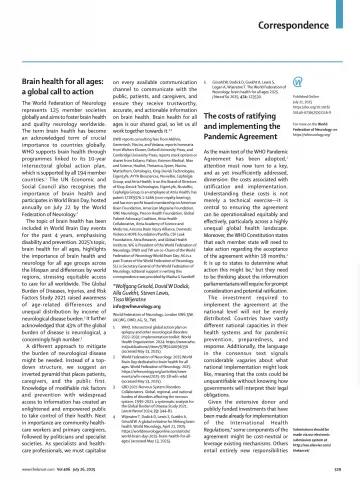 |
Brain health for all ages: a global call to action ⧉Author: Wolfgang Grisold info@wfneurology.org ∙ David W Dodick ∙ Alla Guekht ∙ Steven Lewis ∙ Tissa Wijeratne Publication: The Lancet Neurology, Volume 406, Issue 10501. July 26, 2025 |
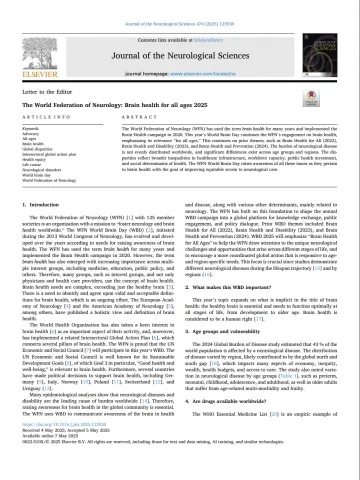 |
The World Federation of Neurology: Brain health for all ages 2025 ⧉Author: Wolfgang Grisold , David W Dodick, Alla Guekht, Steven L Lewis, Tissa Wijeratne Publication: Journal of the Neurological Sciences. 2025 May 7 |
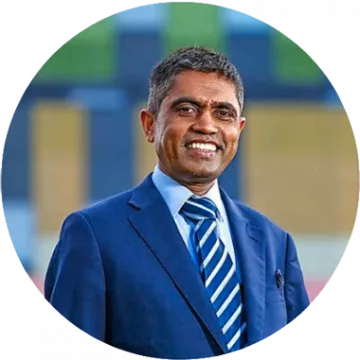
As we move into 2025, we want to expand our collective understanding of what it means to support brain health. This is about advancing equity in neurological care, supporting families, and creating a world where healthy brains are a shared priority—no matter your age or where you live.Prof. Tissa Wijeratne, Co-Chair of World Brain Bay
Supporting All Ages
-
Pre-Conception
Parents’ health and habits before conception shape a baby’s future brain development. Good nutrition, regular check-ups, and balanced lifestyle choices lay a strong foundation. -
Pregnancy
A mother’s physical and emotional well-being is vital for healthy brain growth in the womb. Prenatal care, proper nutrition, and stress management help protect both mother and child.. -
Childhood
Early years are key for learning, emotional growth, and social development. Safe environments, immunizations, and positive parenting form a solid base for lifelong brain health. -
Adulthood
A balanced lifestyle—healthy eating, exercise, and stress control—keeps the brain alert and reduces the risk of many neurological conditions. -
Late Adulthood
Regular check-ups, early detection of conditions like dementia, and staying socially engaged help preserve independence and quality of life in later years.
Why Focus on Brain Health Across All Ages?
By prioritizing brain health from before birth through old age, we can prevent or delay many neurological issues. The WHO highlights two key approaches:
-
Primary Prevention
Stopping problems before they begin. This includes good nutrition, immunizations, reducing risk factors (like smoking), and delivering clear health education at every life stage. -
Secondary Prevention
Early detection and prompt treatment. Regular screenings, check-ups, and timely medical care catch issues in their earliest stages, improving outcomes and lowering the risk of long-term harm.
But prevention is only part of the story. Awareness, education, access, and advocacy also play critical roles. Together, these efforts empower individuals and communities to adopt brain-friendly habits and policies.
Join Us and patients from all six WFN regions under the important partnership of UN ECOSOC and in participation with the WHO. Our shared goal is to champion “Brain Health for All Ages.”
Be part of this global movement. Spread the word, encourage healthy practices, and advocate for the resources needed to protect and nurture brain health—starting before birth and continuing throughout life. We look forward to your support and collaboration on this much-anticipated World Brain Day.

The earlier we prioritize brain health, the greater our chance to reduce the burden of neurological disease.This year’s theme reminds us that brain health is not reserved for one moment in life—it’s an ongoing process that begins even before we are born and continues through every decade we live.David Dodick, MD, Emeritus Professor of Neurology at Mayo Clinic and Co-Chair of World Brain Day
World Brain Day 2025 - Global Activities
WBD Interviews and Vox Pop
World Brain Day Tool Kit
Click here to download the 2025 World Brain Day Toolbox
World Brain Day Toolbox Announcement
Download the World Brain Day announcement email to let your constituents know about the WBD Toolbox so they can spread the word.
Contact Yakkety Yak Marketing to learn more about translating these posts to a different language.
Social Media
Download the World Brain Day social media kit to receive 10 custom social media posts and graphics that can be tailored to your audience and your organization’s World Brain Day event.
Poster
|
Web Banner
|
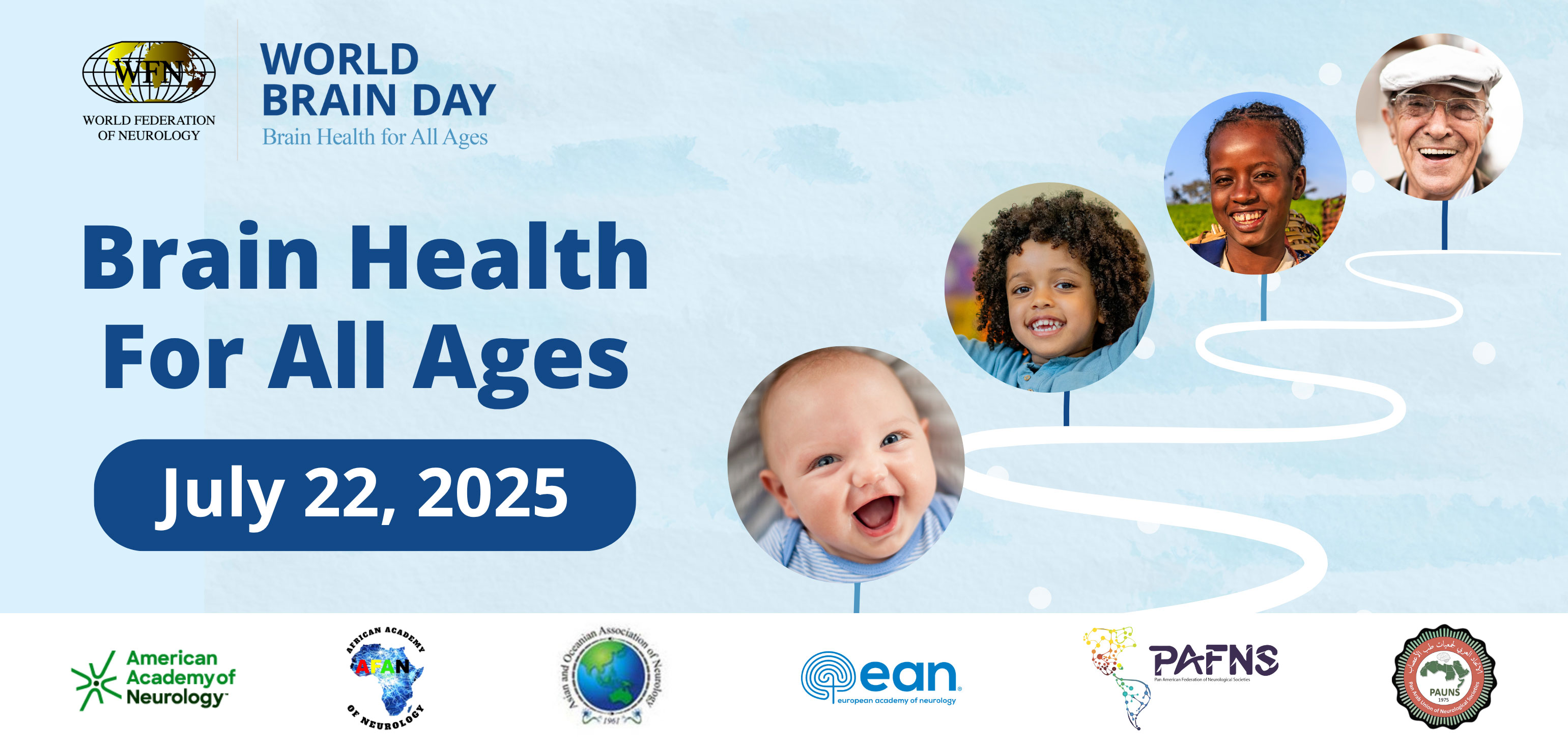
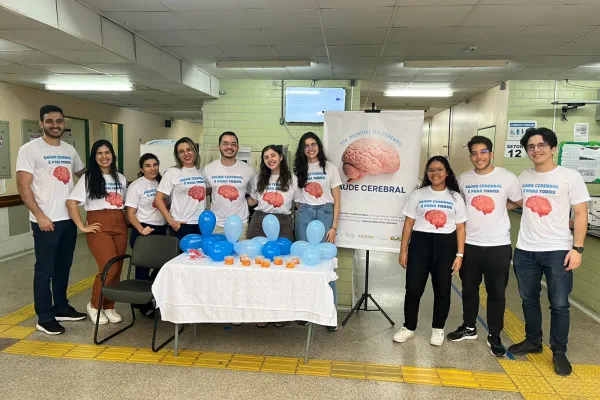
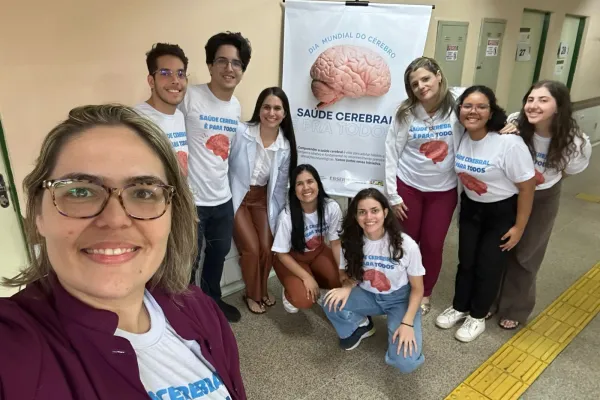
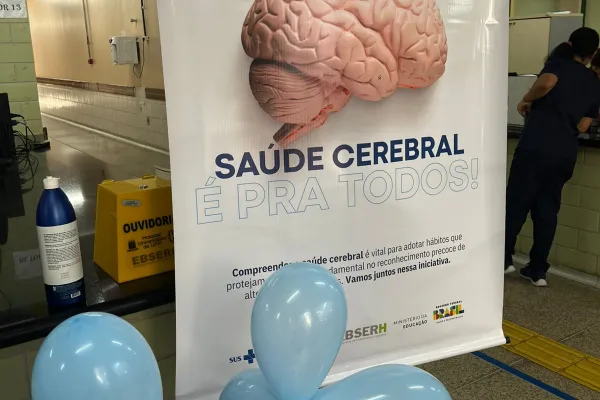
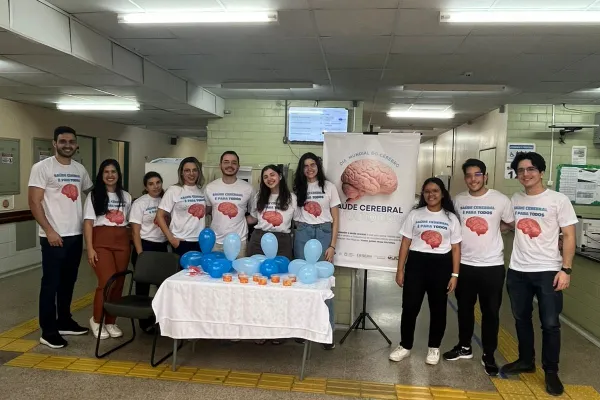
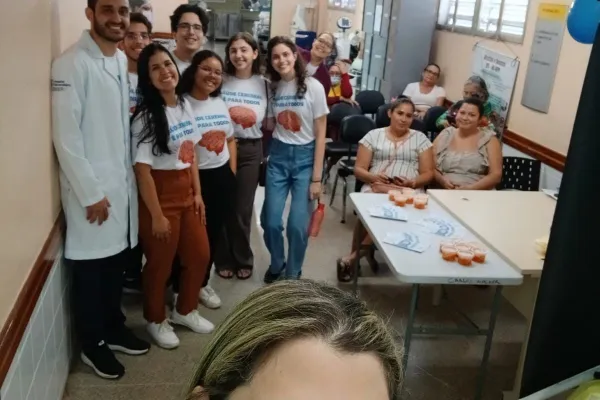
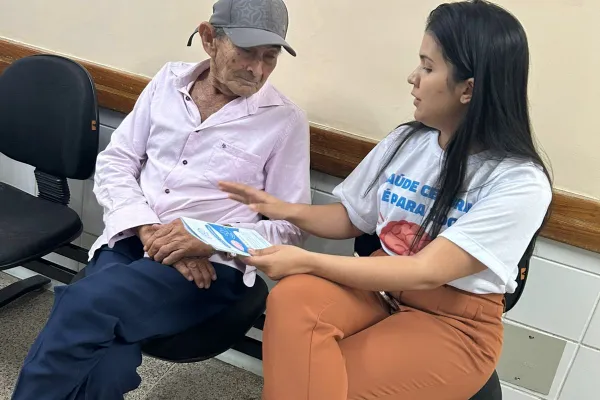
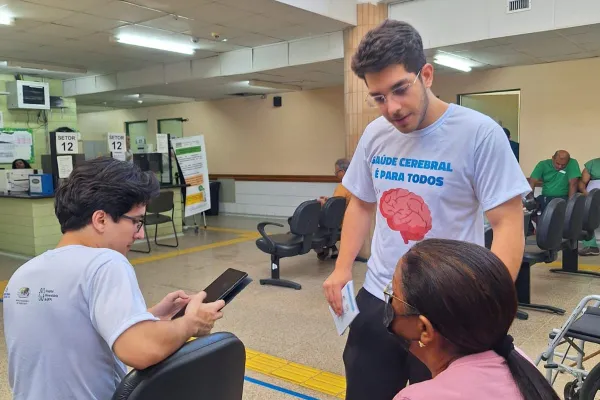
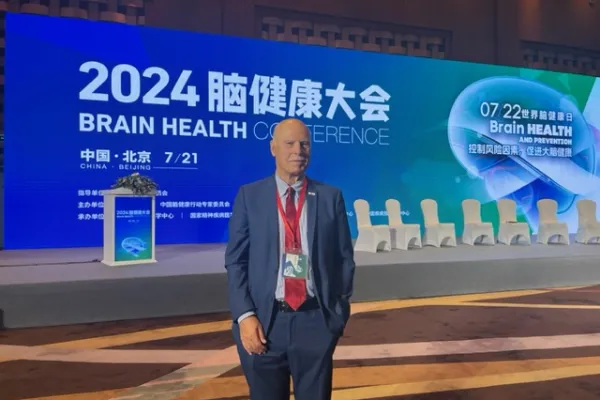
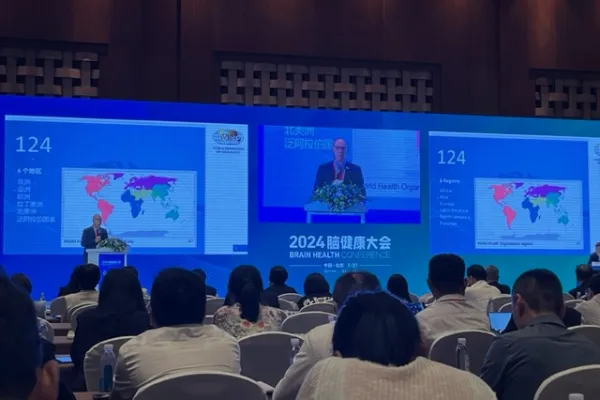




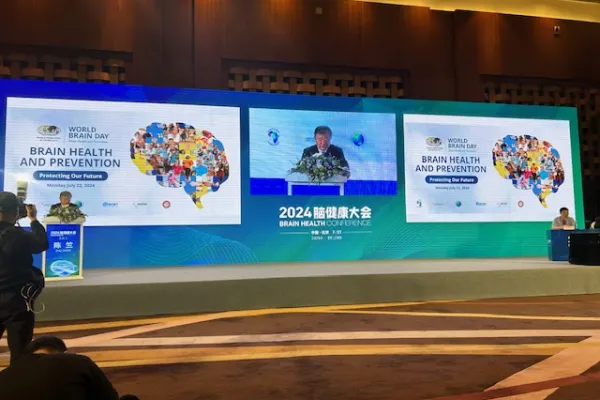
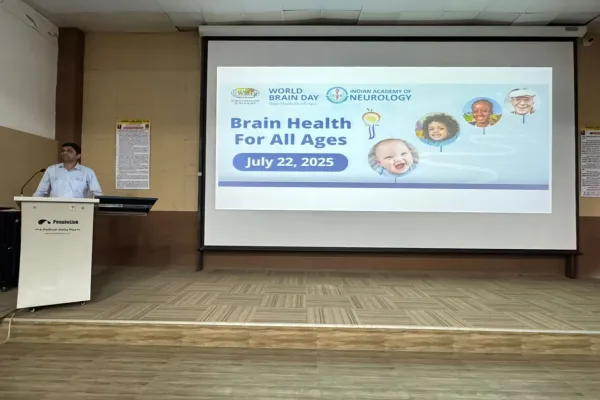
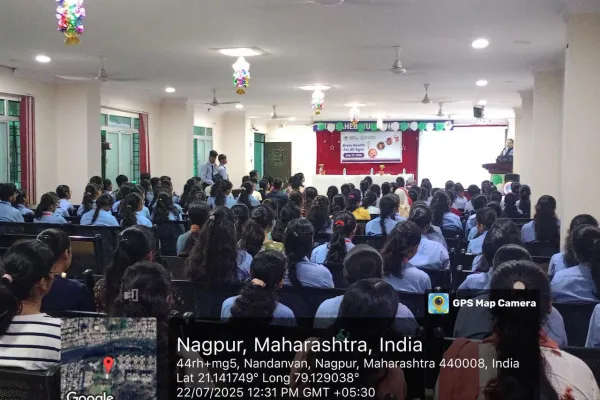
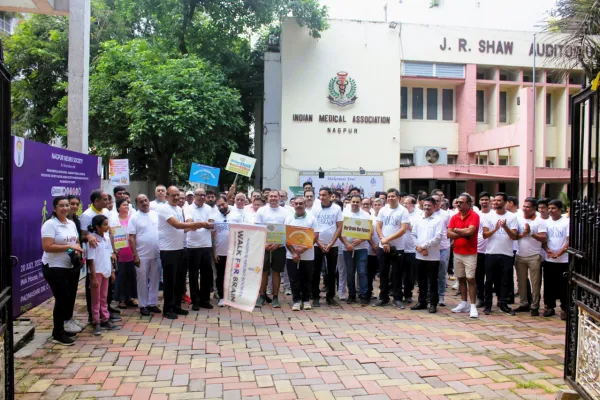
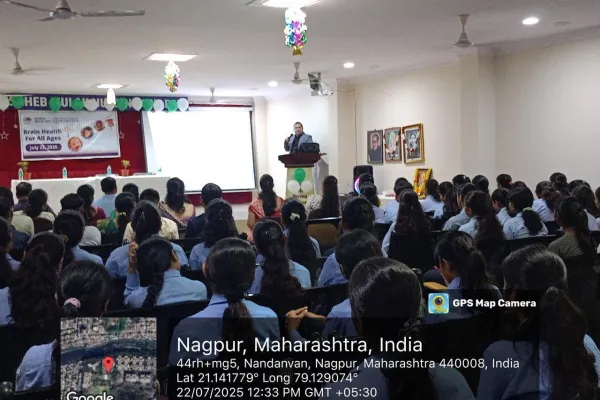
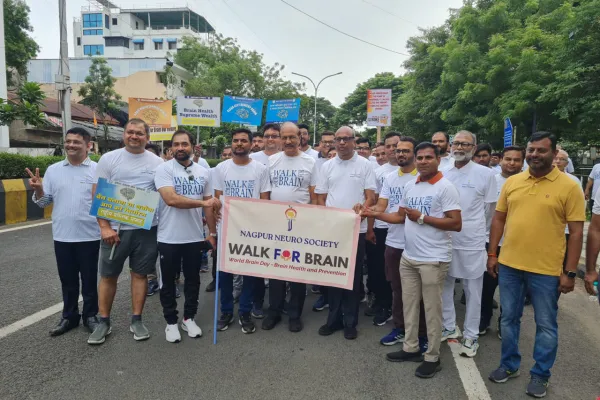
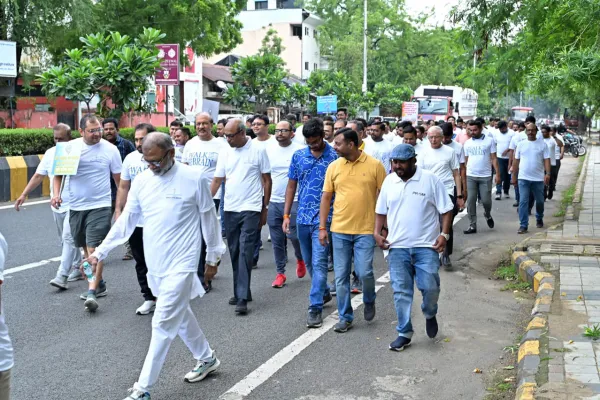
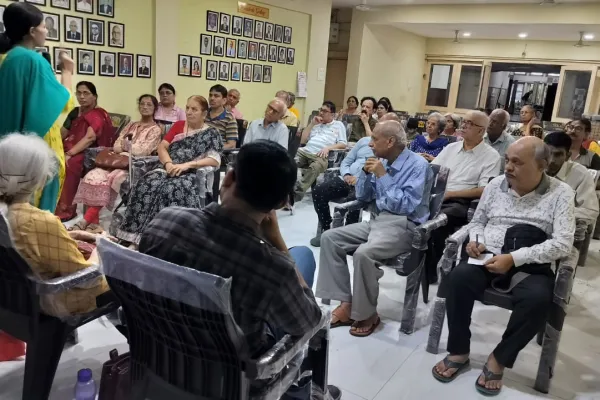

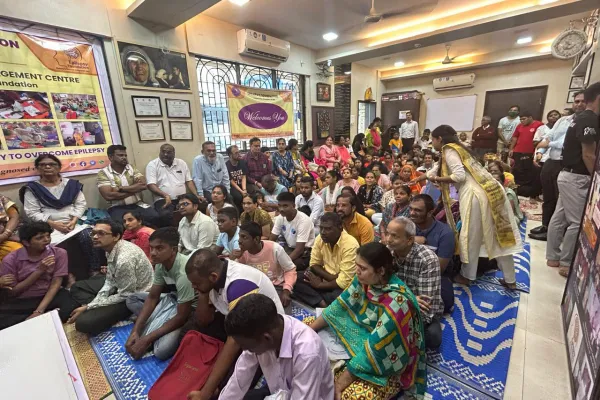
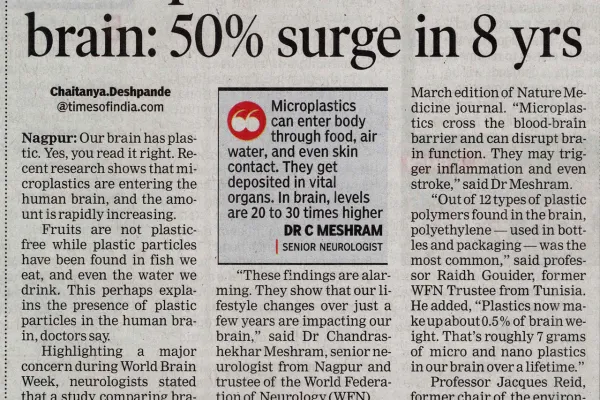
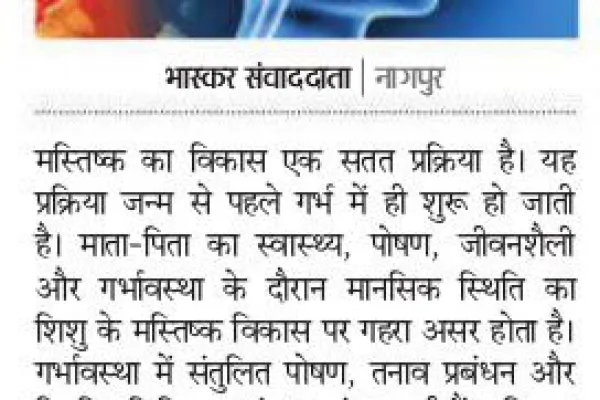
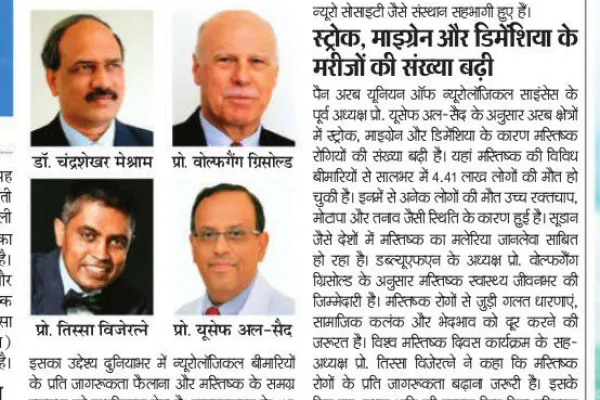
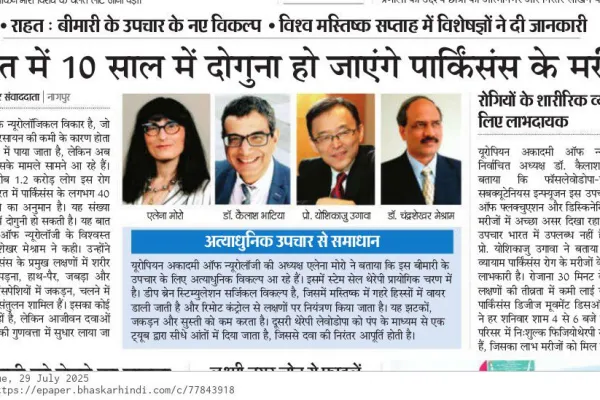
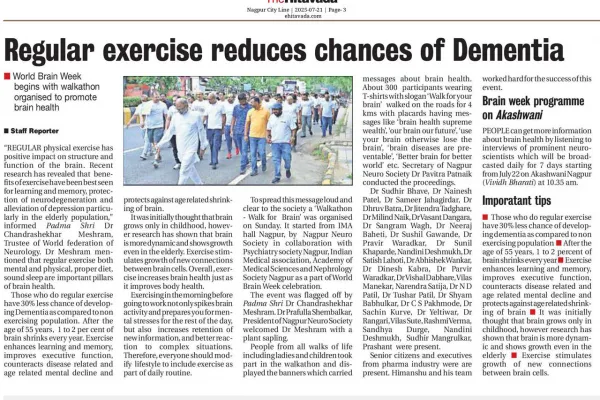
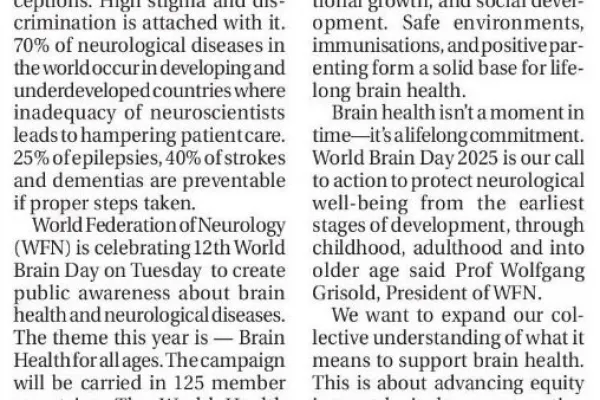
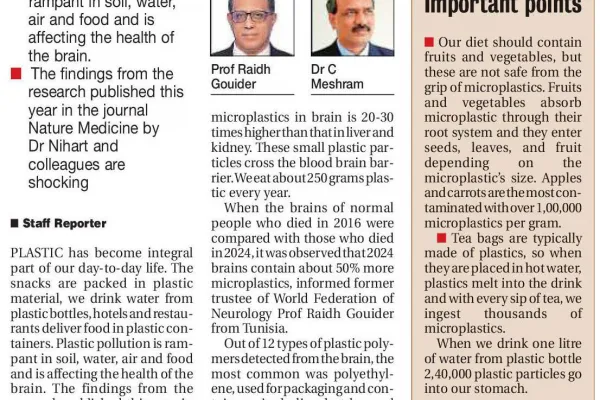
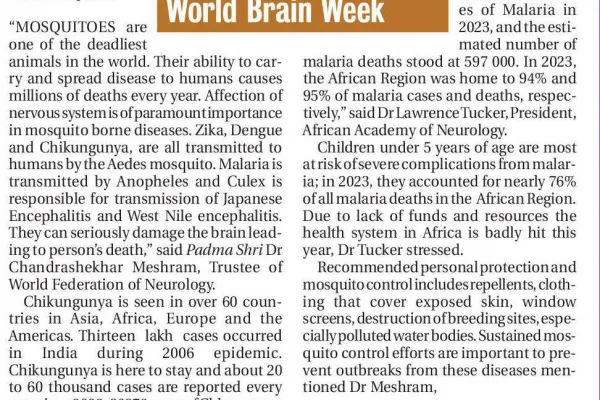
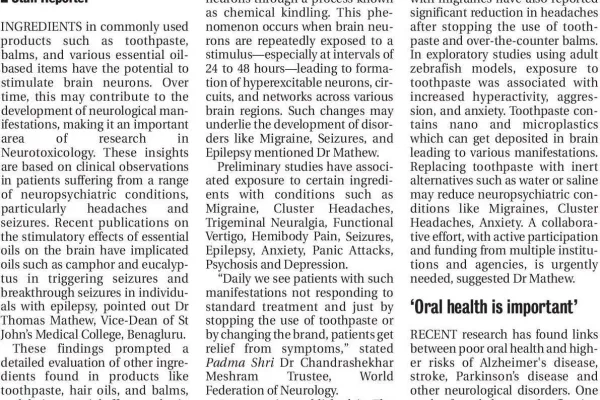
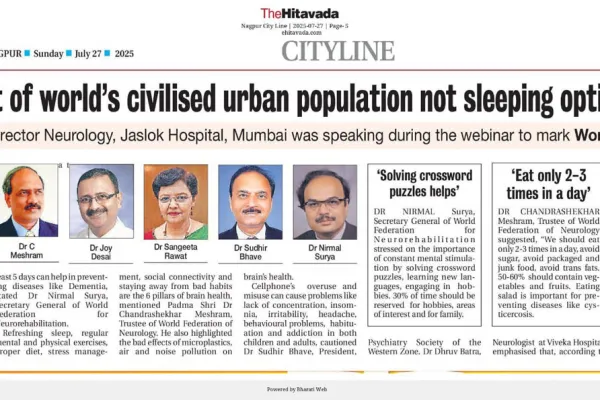
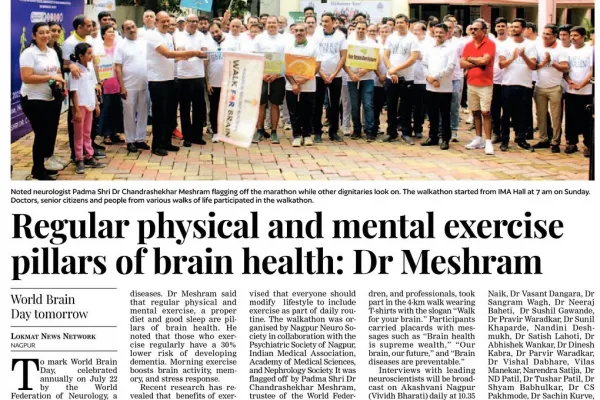
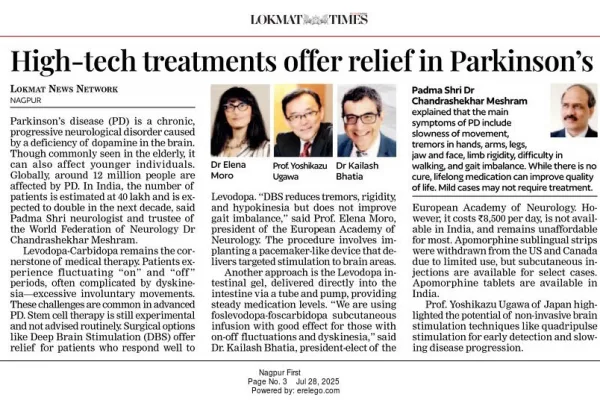
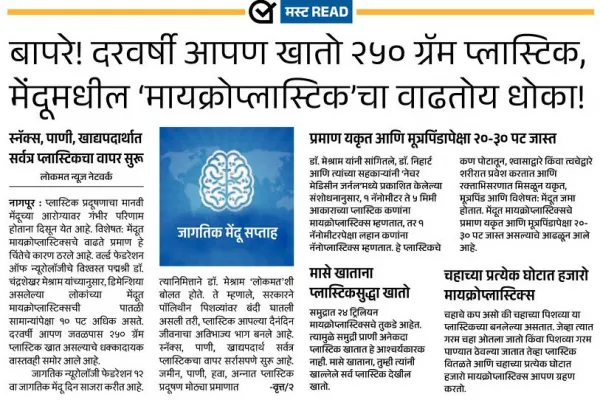
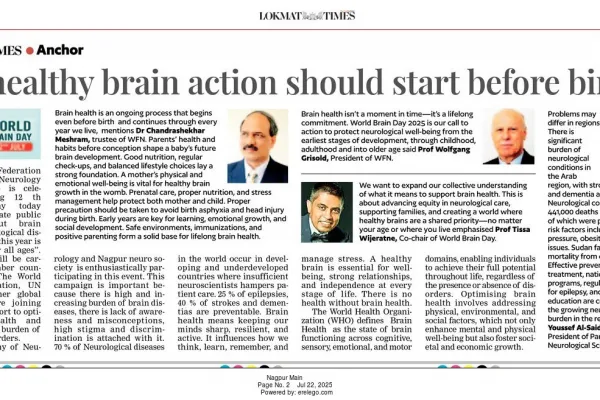
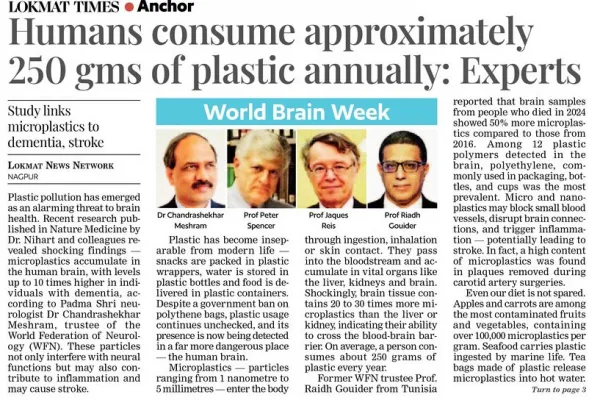
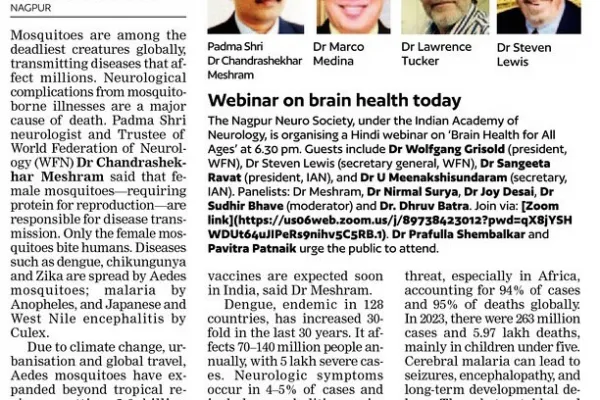
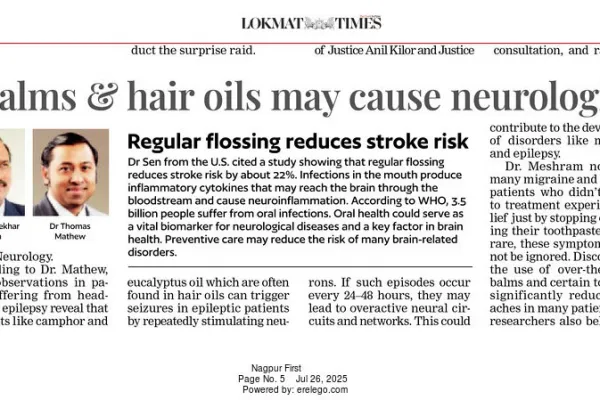
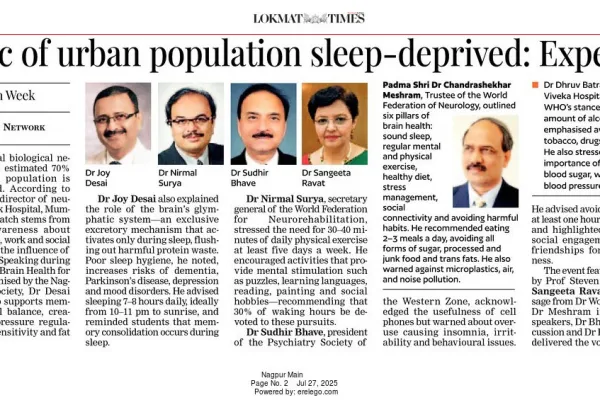
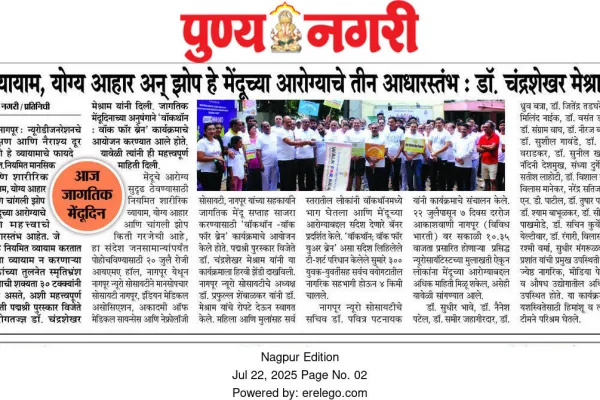
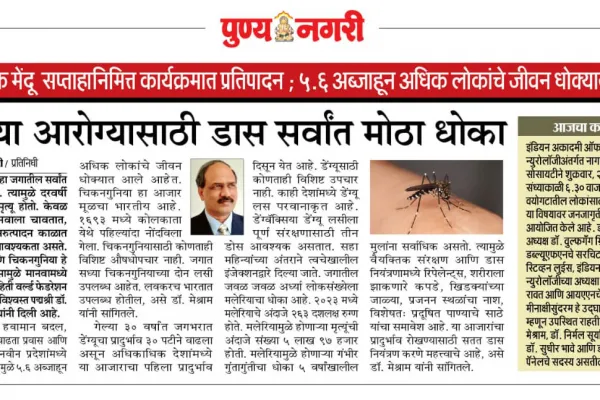
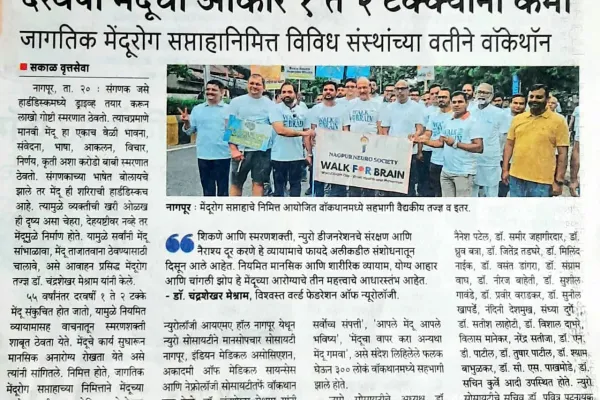
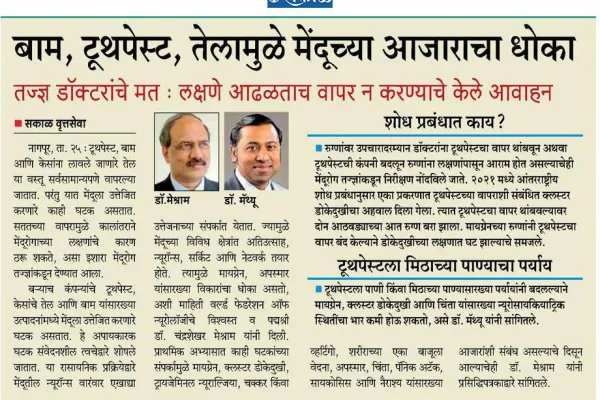
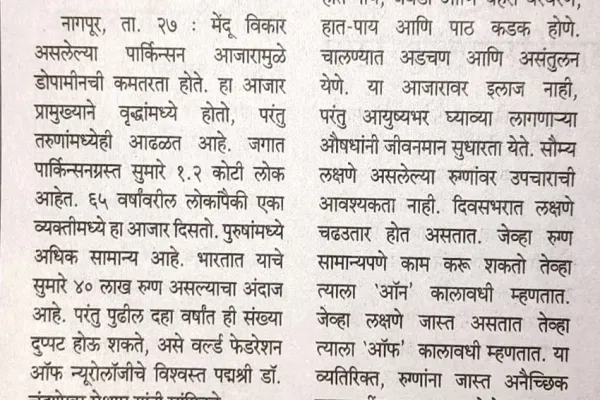
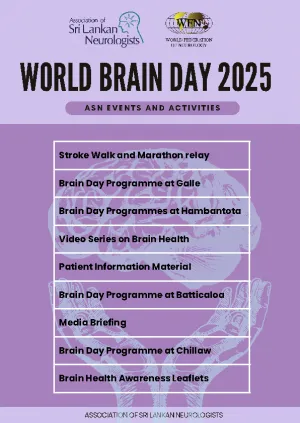
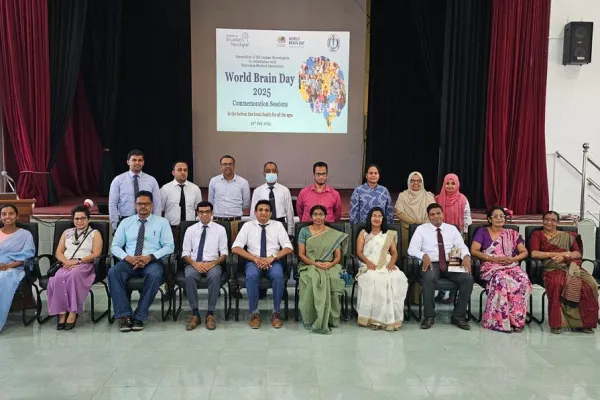
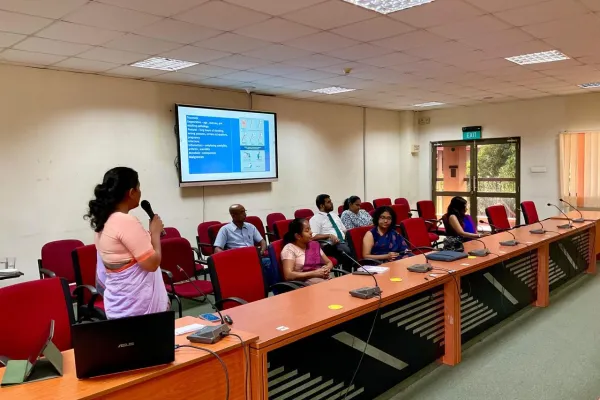
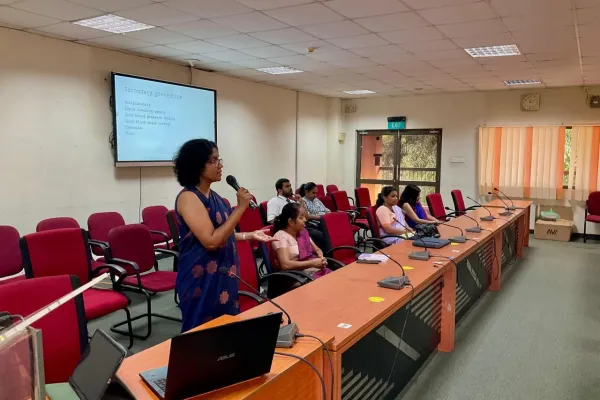
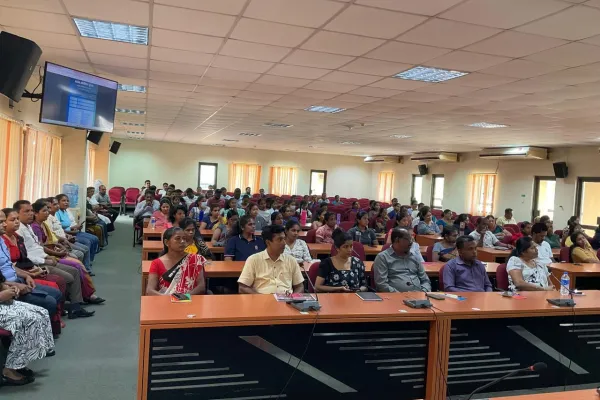
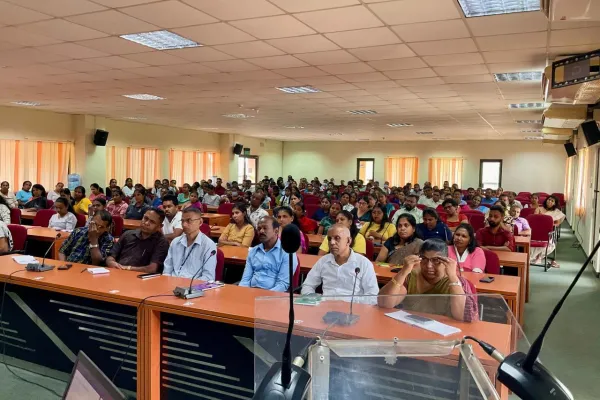
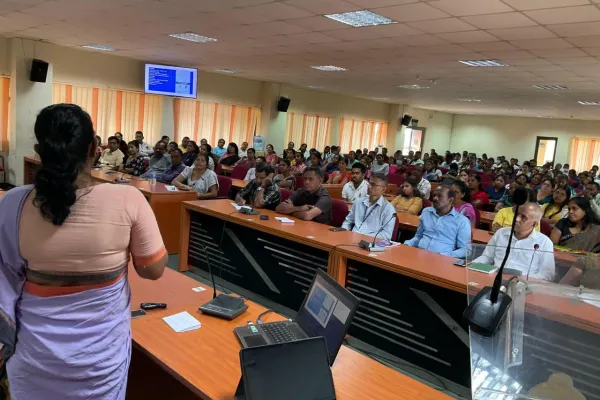
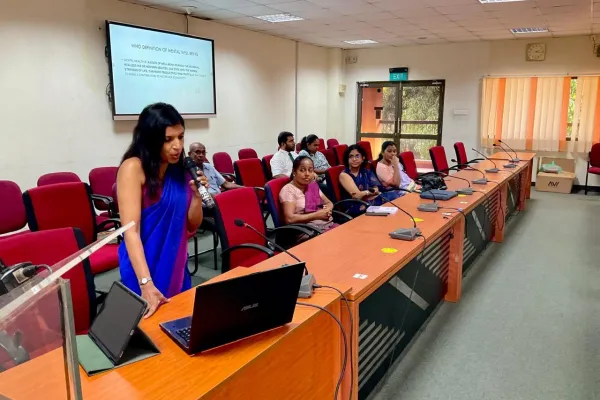
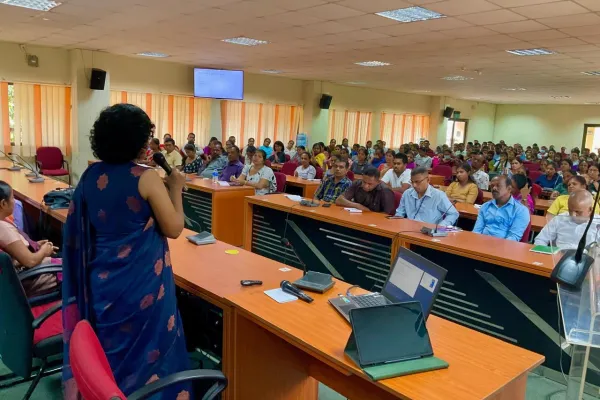
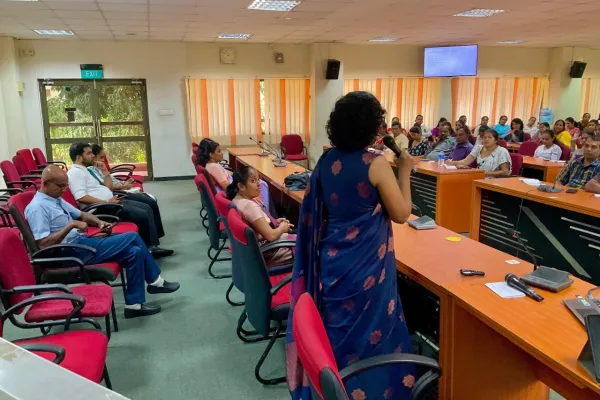
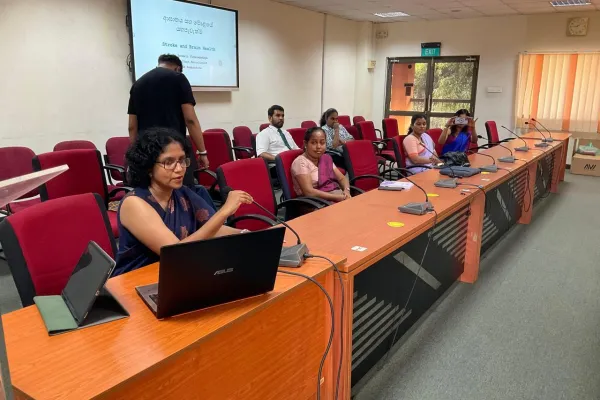
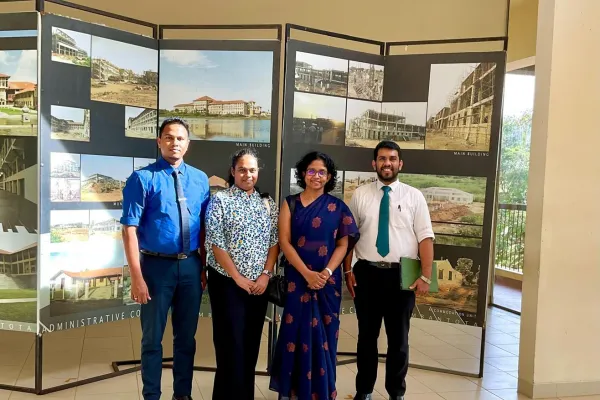
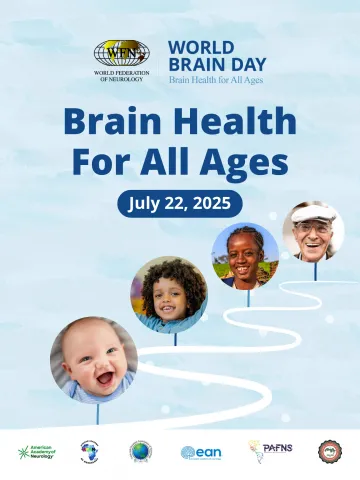

 WFN CONTACT
WFN CONTACT MEDIA CONTACT
MEDIA CONTACT


